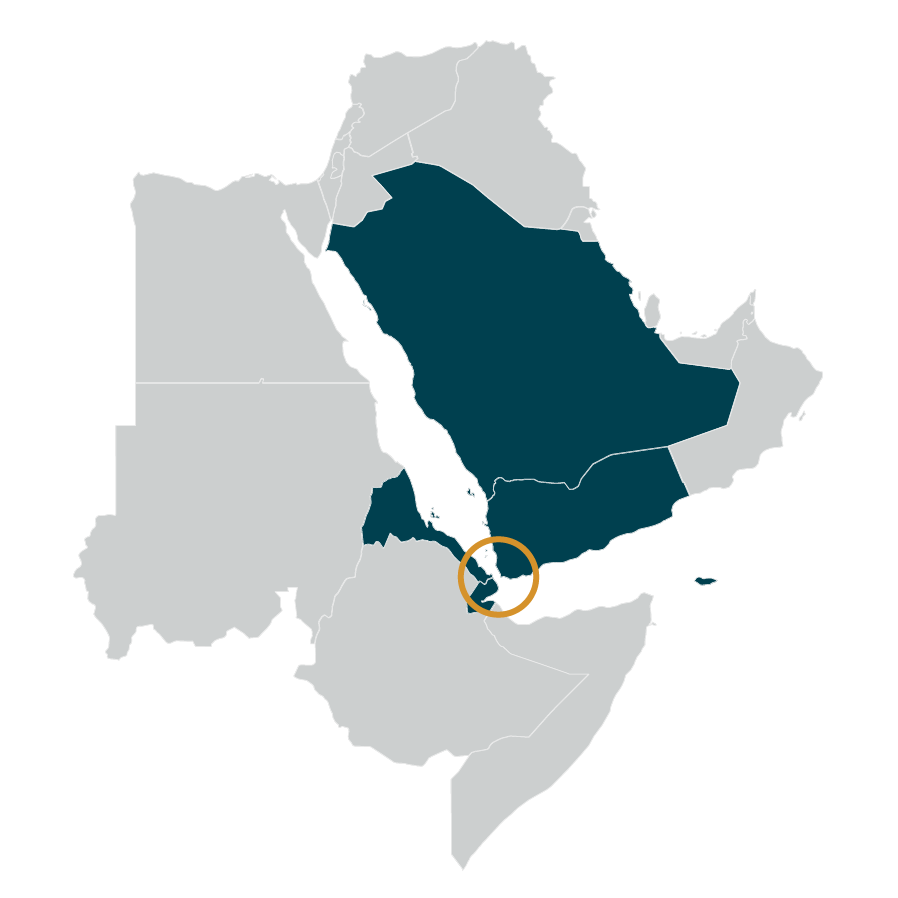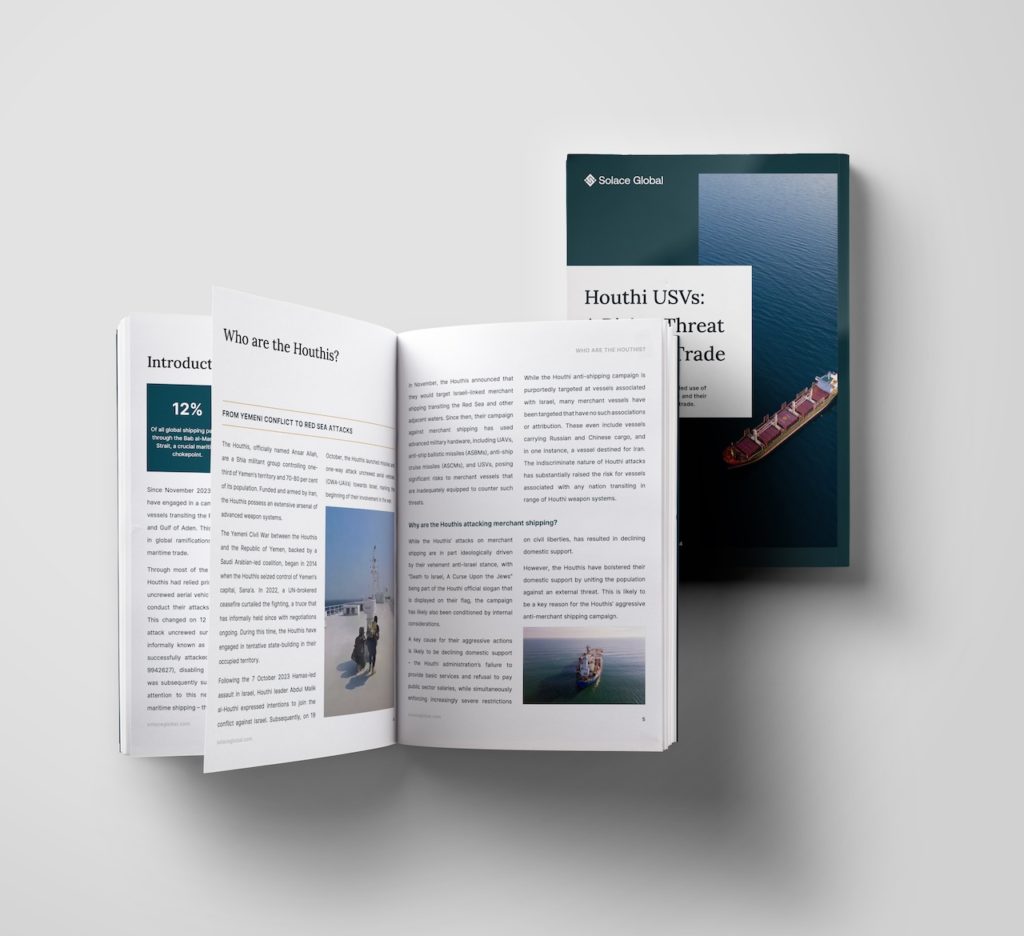Houthi USVs: A Rising Threat to Global Trade

How Houthi USVs Are Disrupting Maritime Security
Since November 2023, the Houthis in Yemen have intensified their attacks on merchant vessels transiting through critical waterways such as the Red Sea, Bab al-Mandeb, and the Gulf of Aden.
These attacks have global ramifications, severely impacting maritime trade. Initially relying on missiles and uncrewed aerial vehicles (UAVs), the Houthis introduced a new threat on 12 June 2024 when they successfully deployed a one-way attack uncrewed surface vessel (OWA-USV) against the MV TUTOR, resulting in the vessel’s sinking.
This marked a significant escalation in their maritime operations, bringing international attention to the dangers posed by USVs.
Why Are the Houthis Targeting Merchant Ships?
The Houthis’ campaign against merchant shipping is driven by a combination of ideological motivations and internal political pressures. Their anti-Israel stance plays a significant role, as reflected in their official slogan, which includes “Death to Israel, A Curse Upon the Jews.”
Additionally, internal challenges, such as declining domestic support due to the administration’s failure to provide basic services and enforce civil liberties, have likely pushed the Houthis to adopt aggressive external actions. By uniting the population against an external enemy, the Houthis aim to bolster domestic support.
How Does the Houthi Campaign Affect Global Trade?
The Bab al-Mandeb Strait is a crucial chokepoint in global maritime trade, connecting the Red Sea with the Gulf of Aden. Approximately 12% of global shipping passes through this narrow strait, making it a prime target for Houthi attacks. The alternative route around the Horn of Africa is not viable for most shipping due to the significant increase in transit time and fuel costs.
The impact of Houthi attacks has been substantial. Freight rates on routes between Asia and Europe have skyrocketed by as much as 284%, contributing to global inflation and increasing costs for consumers worldwide. The threat to maritime trade has prompted a US-led coalition to launch Operation Prosperity Guardian in December 2023 to counter the Houthi threat, although the frequency and scale of attacks remain high.
What Are USVs and Why Are They Effective?
Uncrewed surface vehicles (USVs) offer several advantages in maritime warfare, particularly for groups like the Houthis. Unlike aerial drones or missiles, USVs are harder to detect on radar due to their small size and low profile. They can carry large explosive payloads and strike at a vessel’s waterline, causing significant damage. Additionally, USVs are cheaper to produce and maintain, allowing the Houthis to deploy them in large numbers.
The Houthis have used various types of USVs, including converted patrol boats, weaponised skiffs, and purpose-built designs like the Toofan series. These USVs are primarily assembled in Yemen, using components likely supplied by Iran. This local production capability makes it difficult to disrupt their supply chain, allowing the Houthis to continue their maritime operations with minimal external support.
Equip your organisation with the insights needed to protect global trade routes in 2024. Download the full report to understand the growing threat of Houthi USVs.
IN THIS REPORT:
- Who are the Houthis?
- Why are the Houthis attacking merchant shipping?
- Impact on Global Trade
- Houthi USVs
- Historical use of USVs
- Advantages of USVs
- USVs in the Houthi Arsenal
- Houthi Targeting Methods
- Houthi attacks involving USVs:
- Assessment
- Future Developments
FREE INTELLIGENCE ANALYSIS
Weekly Global Intelligence Insights
Sign up now to receive our weekly Global Intelligence Summary and quarterly Election Guide. Stay informed about key geopolitical events and upcoming elections that could spark unrest and shape the global landscape.

